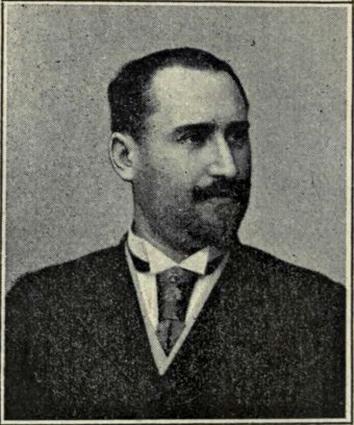Émile Cossira
Born Jean-Émile Coussirat (and not, what you'll read most everywhere, Coussival), he studied voice at the conservatory of Bordeaux and made his debut in 1883 at the Paris Opéra-Comique as Grétry's Richard Coeur-de-Lion. The next few years, he sang in Belgium (Gent, Antwerp, Théâtre de la Monnaie in Brussels). From 1888 to 1891, he was at the Paris Opéra (debut role: Fernand in La favorite), where he participated in the world premiere of Saint-Saëns' Ascanio on 21 March 1890. Other roles he sang at the Opéra included Raoul, Vasco da Gama, Gounod's Faust, Roméo and Edgardo.Milano, Scala, Linda di Chamounix, from 2 January 1902 onwards, with Rosina Storchio, Elisa Bruno/Blanca Lavin de Casas, Mario Sammarco, Enrico Contini, Arcangelo Rossi/Augusto Dadò, Arturo Toscanini (total 10) Milano, Scala, Requiem, from 27 January 1902 onwards, with Malia Karola, Elisa Bruno, Constantino Nicolay, Arturo Toscanini (total 2) Milano, Scala, Euryanthe, from 2 April 1902 onwards, with Rosina Storchio, Elvira Magliulo, Onoria Popovici, Antonio Magini-Coletti, Augusto Dadò, Arturo Toscanini (total 3) Discography Phono-Cinéma-Théâtre cylinder (unnumbered), Paris, 1900 Roméo et Juliette (Gounod): Ah! lève-toi, soleil Disque Gramophone, Paris, January 1904 2850F Jérusalem (Verdi): Je veux entendre encore 3-32059, Zonophone X-82100 2851F La perle du Brésil (David): Zora, je cède 3-32058, Zonophone X-82102 2852F Dimitri (Joncières): Moscou, voici la ville sainte 3-32055, Zonophone X-82103 2854F Histoire d'amour (Samaras): Partir! quitter ce que l'on aime 3-32054, Zonophone X-82104 2855F Le prophète (Meyerbeer): Roi du ciel 3-32056, Zonophone X-82105 Disque Gramophone, Paris, February 1904 2909F Sérénade de Severo Torelli (Schatté) 3-32065, Zonophone X-82106 2910F Chanson d'Estelle (Godard) 3-32066, Zonophone X-82107 2911F Au printemps (Gounod) 3-32064, Zonophone X-82108 2912F Die Zauberflöte (Mozart): Jamais dans son rêve un poète 3-32068, Zonophone X-82109 2913F Naples (d'Hack) 3-32057, Zonophone X-82110 2914F Ouvre tes yeux bleus (Massenet) 3-32067, Zonophone X-82111 2915F Stances à Manon (Delmet) 3-32063, Zonophone X-82112 2916F Il était nuit déjà (Duprato) 3-32106, Zonophone X-82113 Disque Gramophone, Paris, March 1904 3007F La muette de Portici (Auber): Du pauvre seul ami fidèle 3-32142, Zonophone X-82114 3011F Mefistofele (Boito): Je touche au but extrême 3-32107, Zonophone X-82115 3012F Tristesse de la lune (Rollinat) 3-32108, Zonophone X-82116 3013F Aime-moi (Bemberg) 3-32109, Zonophone X-82117 3014F Chant provençal (Massenet) 3-32110, Zonophone X-82118Source: Gesellschaft für historische Tonträger, Wien I wish to thank Juan Dzazópulos for his help. I wish to thank Richard J Venezia for the recording. |
